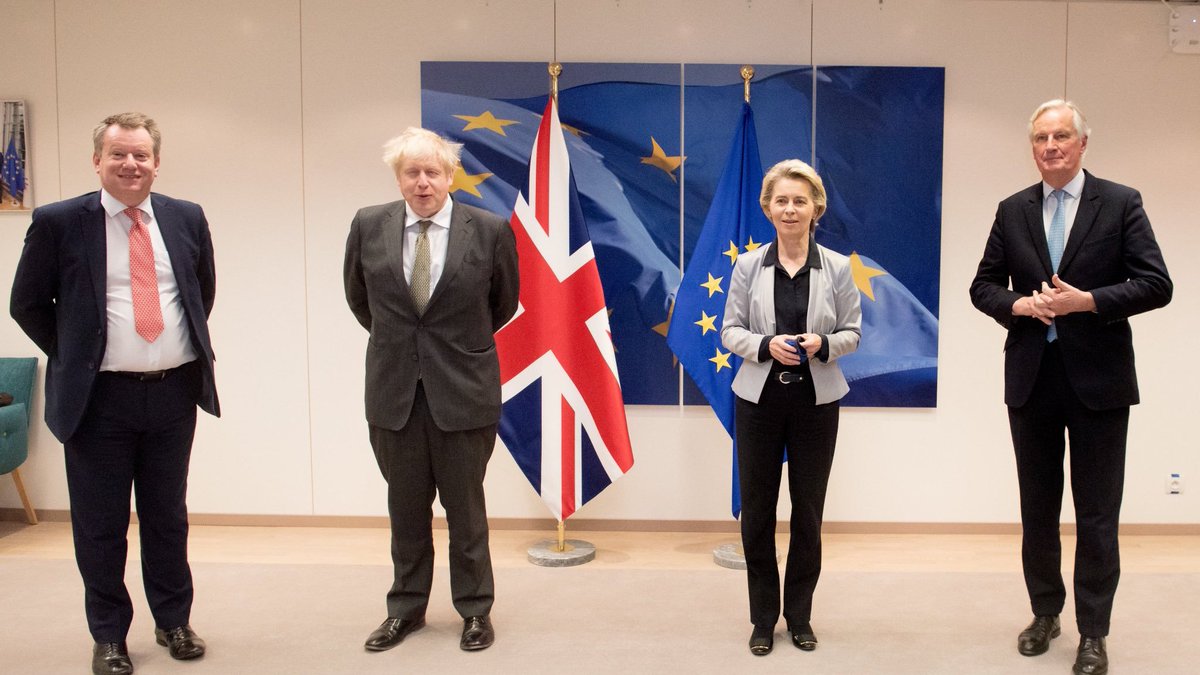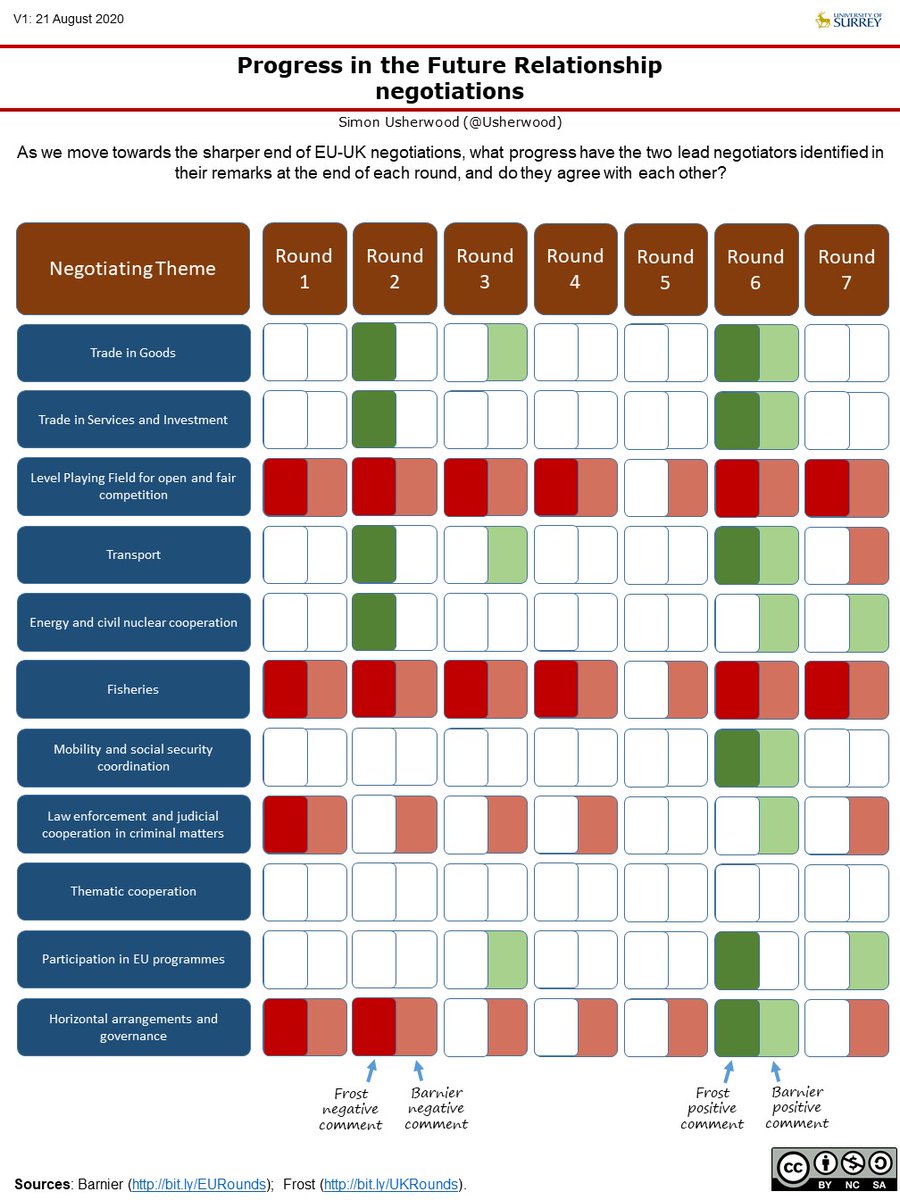
The morning after the dinner before
If you'd like a very simple take-away of why this has gone belly-up (and bellies were much in focus last night), then focus on trust
1/
If you'd like a very simple take-away of why this has gone belly-up (and bellies were much in focus last night), then focus on trust
1/

The root cause of the major problems in these negotiations has been that neither side trusts the other all that much
2/
2/
The UK political debate has long been coloured by the suspicion that there is some nefarious agenda behind European integration, aided by a more general distrust of grand visions
3/
3/
The EU was a lot more accommodating, but the period since 2015 has been a succession of what it takes to be bad faith moves by the UK: from the renegotiation, to the sudden #GE17, to the Jt Rpt, to the WA ratification saga, to the IMB (among others)
4/
4/
Upshot is that the EU has ended up wanted to make sure it doesn't get messed about any more (hence robust and enforceable commitments), while the UK sticks to avoiding anything that might leave it bound to 'diktats from Brussels'
5/
5/
Note that the UK doesn't have any concrete plan to diverge or dump [the regulatory sort, not the... yeah, OK], just as the EU isn't likely to start jacking up standards to make the UK dance along
But that's not the point: it's about trust
6/
But that's not the point: it's about trust
6/
As such, both sides have failed totally on this: to go from mostly awkwardness after #EURef to an utter lack of progress on the core problems of these negotiations is a negative mark against all involved, since we certainly could have got to the same place w/o all the grief
7/
7/
So this isn't about the outcome, but the process
However these talks turned out, the UK and EU were always going to have to continue to rub along against each other, for which a functional level of trust is indispensable
8/
However these talks turned out, the UK and EU were always going to have to continue to rub along against each other, for which a functional level of trust is indispensable
8/
Since we appear to be about to end up in a no-deal scenario (which neither side wanted BTW), that question of trust is going to become even more central
So 2021 is going to have to about how to rebuild that, as much as any substantive measures
9/
So 2021 is going to have to about how to rebuild that, as much as any substantive measures
9/
I am less than confident that this will be simple or swift: even if the recriminations and blame-slinging are contained, this is a terrible place to come back from
10/
10/
But maybe just consider that much of the current situation could have been made easier (or even avoided altogether) if there had been a bit more trust between the two sides
/end
/end
• • •
Missing some Tweet in this thread? You can try to
force a refresh







